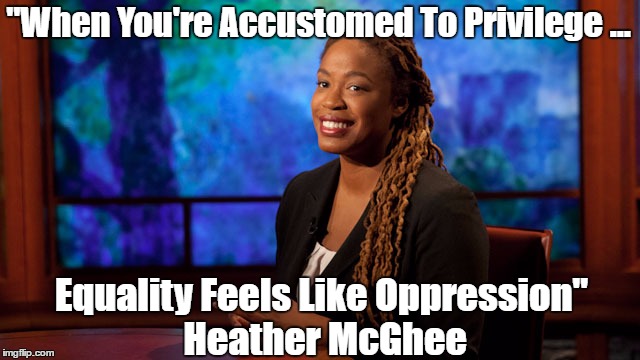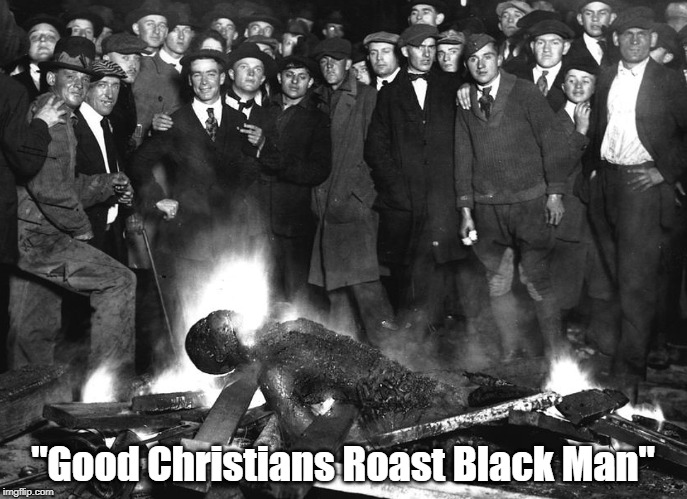The Black People Who Voted for Trump Know He’s Racist
Amid the prevailing sense of horror that so very many Americans pulled the lever for our incompetent-in-chief is a persistent strain of confusion that a not-insignificant number of Trump supporters were Latino or Black. Most ethnic minorities, unsurprisingly, did not vote for Trump—but then some people wonder why the number who did was anything more than, perhaps, enough to fill a bus.
However, I don’t find it baffling in the least that Black and Latino people might deem President Donald Trump worthy of their vote, despite the fact that I was most certainly not one of them. The non-white segment of Trump’s support demonstrates a gulf between how the “woke” left processes racism and how many people in the real world do. The former assumes that racism is a wedge issue, and the most cardinal of human sins; the latter are far less doctrinaire.
Derek Thompson: The most important divide in American politics isn’t race
I, for example, am a great fan of old movies. I am quite aware that the world they were situated in was an implacably racist one. I may lust after Ginger Rogers and Jeanne Crain and Gene Tierney (as well as Lena Horne and Dorothy Dandridge!), and have a particular thing for the grand old comedian Marie Dressler. I am also quite aware that these white women would have seen me as less than human or, if nothing quite that stark, would have blanched at the thought of dating me and furthermore felt the same way about their children dating a Black person. Dressler spent some of her career happily singing “coon songs,” the nature of which the reader can likely imagine without illustration.
In the same way, Black people today may hear Trump claim, bizarrely, that he has done more for African Americans than any previous president, read about the segregationist practices of his and his father’s real-estate properties back in the day, and note that Trump is especially given to calling Black public figures “unintelligent”—and yet still decide that his agenda otherwise appeals enough that they will vote for him even if he wouldn’t quite respect them as individuals. A Latino person can know that Trump referred to immigrants from Mexico as “rapists” but still feel that Trump’s jobs record is more important than his racist sentiments. Unfond memories of life under leftist or socialist leaders such as Fidel Castro may, as it were, trump Trump’s racism in their eyes. After all, before the pandemic, the economy really was humming along in a way that materially affected American lives for the better.
Or, with both Latinos and Black people, they may simply like the man’s charisma. Legions of voters go for charisma rather than what concerns the readers of The New Yorker or Vox, and it has always been thus.
Similarly, to the Black people who helped get Joe Biden through the primaries, his position on busing decades ago and his support for anti-crime legislation that turned out badly for Black communities made him not the devil, but imperfect—and yet a more viable choice as a presidential candidate than quite a few others. These voters weighed, they compared, they addressed ambiguity, and they made a pragmatic selection.
The chattering classes may be surprised that for more than a few Black and Latino people, someone being a racist is often classified as tacky and then some, but hardly marks them as moral perverts unworthy of anything so dignifying as a vote.
This point of view is perhaps easier to understand if we recall that back when racism was more prevalent and more overt, Black voters did not even have the choice of restricting their vote to the candidate who disavowed racism and yet were quite intellectually coherent in their choices. In 1912, W. E. B. Du Bois espoused voting for none other than the nakedly racist Woodrow Wilson, fully aware that Wilson did not “admire,” as he put it, Black people but seeing his policies as better for Black people than Theodore Roosevelt’s—despite the fact that Roosevelt had performed the gesture of having Booker T. Washington dine at the White House. Even as racial enlightenment dawned among whites after 1960, no Black person hanging John F. Kennedy’s picture in their kitchen—and there were a great many—was under any impression that JFK would have countenanced one of his kids dating a Black person, much less consorted with one himself.
Progressives may suppose that, now that the country has come so far in recognizing the backwardness of racism, Americans can afford to be more exacting. And racism is indeed a gruesome reality that an enlightened America must get past as much as possible. However, there is a difference between embracing this goal as one among many and treating it as a religiously tinged mic-drop concern. Black or Latino Trump voters may know quite well that racism exists, or that Trump is racist, yet not prioritize it to the degree that the woke consensus assumes any sensible person would. To psychologically healthy individuals, the fact that Trump wouldn’t want to be their friend may seem an abstraction, as they will never meet him, have fulfilling lives that have nothing to do with him, and are quite sure that they are as good as him anyway. To these people, Trump’s policies, or even just some of them, or even just the cut of his jib, may seem more important than what Trump would say about them in private—or public.
This outlook arguably represents a more sophisticated sensibility than the pitchfork attitude of many on racism. Think of those who since the 1980s have rejected the Great Books canon because the authors were white and almost always racist. Ahead of the curve? Maybe. Or one could see this condemnation of people for being unable to see beyond their time as simplistic and even anti-intellectual. Many, in fact, do.
The idea that once anti-racism has acquired real purchase in our consciousness that it must be the measure of everything in how we evaluate those among us, in the fashion that Galileo’s detractors assumed Christianity must determine scientific inquiry, is not truth incarnate. It is a modern fashion, one that perplexes as many as it attracts. The notion that we are not whole until we are seen as perfect equals by all citizens is creative at best, but utopian at worst. Life as an individual is too rich for that vision to compel more than a subset of the population.
The lesson here is that the identitarian left must not labor under the impression that all Black and brown people share their sense of racism as an ultimate deal breaker. Coalition building of the kind that will win future elections will require them to hold their noses and understand that to many perfectly sane people of color, policy matters more than rhetorical virtue on race and racism. They must also understand that few of such people will be amenable to schooling on the matter. Talk to them as prodigals who need to be taken out back and instructed in the gospel and you will only drive them to the next charismatic, incurious megalomaniac that rises from the Republican swamp.
We want to hear what you think about this article. Submit a letter to the editor or write to letters@theatlantic.com.




No comments:
Post a Comment